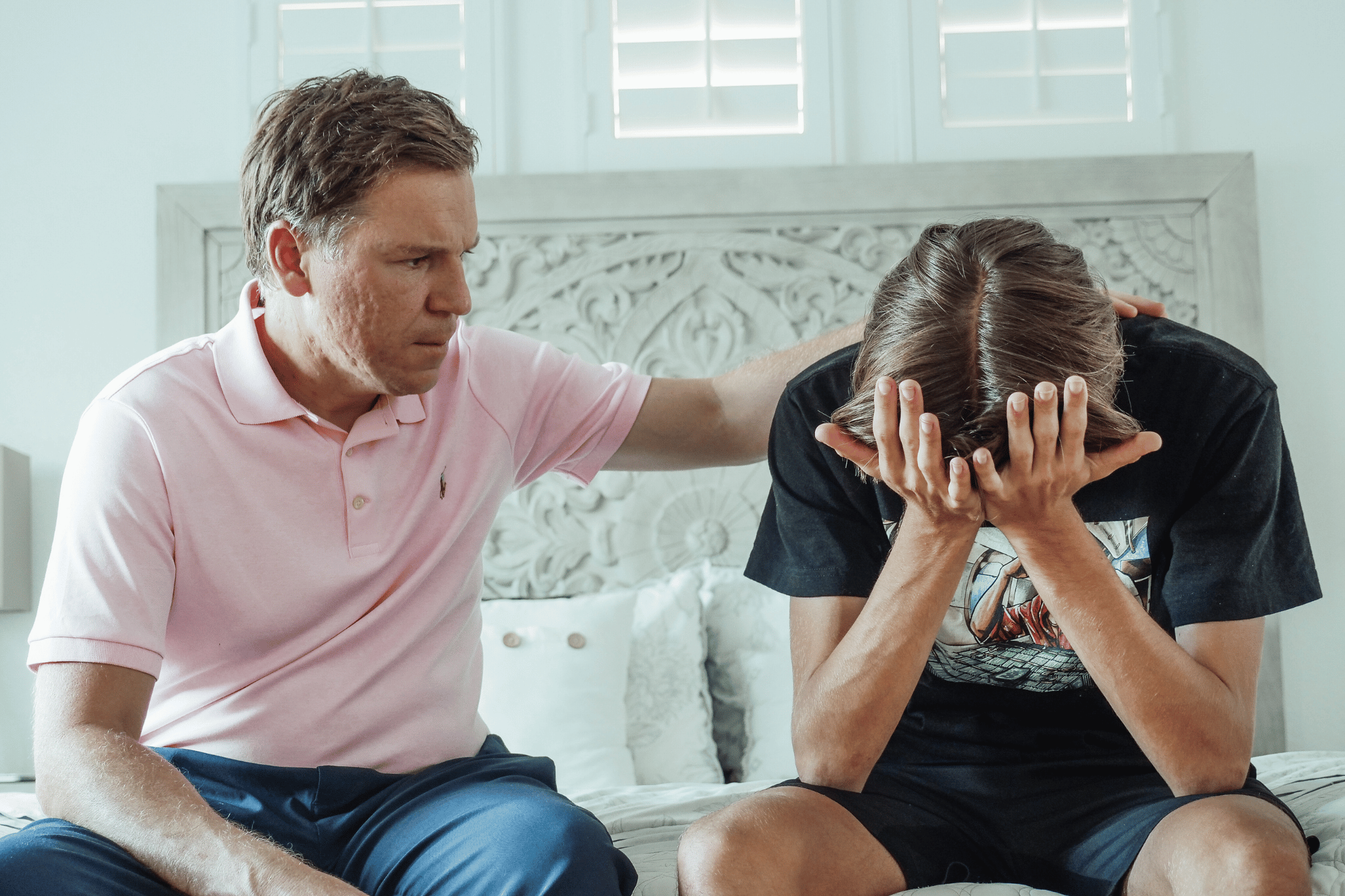Peer Pressure in Teens
Peer pressure plays a major role in adolescent behavior and mental health. During the teenage years, young people are highly influenced by their social environment. This includes classmates, close friends, online personalities, and peer groups. Peer pressure can lead to both positive growth and negative consequences, depending on the behavior being encouraged.
At Adolescent Mental Health in Orange County, we provide therapy and support for teens who are struggling with peer influence, identity, and emotional stress. Our programs are designed to help youth build confidence, strengthen decision-making skills, and improve overall mental well-being.
What Is Peer Pressure?
Peer pressure is the emotional or social force that one or more peers exert on another to change their attitudes, values, or behaviors. It can happen in many settings—at school, at home, in sports, or on social media.
For teens, fitting in is a strong motivation. This is linked to the development of the brain’s prefrontal cortex, which controls judgment and impulse control. Because the teenage brain is still maturing, teens often prioritize acceptance over personal values or long-term consequences.

Types of Peer Pressure
Peer pressure is not always negative. It can push teens to do better in school or avoid risky behavior. However, the most concerning type of pressure is negative peer pressure, which can lead to dangerous choices and mental health struggles.
1. Direct Pressure:
Someone tells the teen exactly what to do, such as urging them to drink alcohol or skip class.
2. Indirect Pressure:
The teen feels pressure from observing others and fearing social rejection, even if no one says anything directly.
3. Positive Pressure:
Peers encourage good behavior, such as joining a study group or avoiding drugs.
4. Negative Pressure:
Peers push the teen to engage in risky behaviors, like unsafe sex, substance abuse, or criminal activity.
5. Passive Pressure:
The teen absorbs pressure just by being in an environment where harmful behavior is normalized.
Understanding these types of pressure is key to preventing behavioral issues, emotional distress, and poor academic performance.
What Are the Effects of Peer Pressure?
Peer pressure can shape personality, choices, and self-worth. While positive pressure can promote motivation and goal setting, negative pressure is often linked to:
Anxiety and Depression:
Teens may feel trapped or confused when trying to meet unrealistic social standards. This leads to chronic stress and mood issues.Substance Abuse:
Teens may experiment with drugs, vaping, or alcohol to gain approval. This can result in addiction or dependence over time.Academic Struggles:
Avoiding homework, skipping school, or losing focus in class are common when teens prioritize peer approval over education.Risk-Taking Behavior:
Teens influenced by others may engage in unsafe driving, shoplifting, or violent behavior without thinking of consequences.Low Self-Esteem:
Failing to fit in can make a teen feel isolated or worthless, especially during critical years of emotional development.
These outcomes can escalate quickly if not addressed through counseling, support, or structured therapy.

What Are the Effects of Social Media on Peer Pressure?
Social media creates a constant stream of peer comparison. Unlike face-to-face interactions, social platforms expose teens to unrealistic lifestyles, body standards, and trends 24/7.
Key effects include:
Fear of Missing Out (FOMO):
Seeing others attend parties or events can make a teen feel left out, leading to poor mental health.Low Body Image:
Edited photos and beauty trends can impact self-esteem and trigger eating disorders, especially among teen girls.Pressure to Perform:
Likes, views, and shares become social currency. Teens may feel forced to act out or behave provocatively to gain attention.Cyberbullying:
Teens can be harassed or excluded online, adding to feelings of isolation, anxiety, and social pressure.
Therapy that addresses media literacy and online behavior can help teens build better coping skills.
How Can Teens Deal With Peer Pressure?
Teens can build resilience against peer pressure by learning healthy ways to respond. Mental health counseling and open communication with trusted adults are key to helping teens manage this stress.
Strategies include:
Build Confidence:
Encourage teens to participate in activities that make them feel strong and valued.Set Boundaries:
Teens should practice saying “no” in situations that feel uncomfortable or dangerous.Choose Friends Wisely:
Supportive and responsible friends reduce exposure to high-risk behavior.Practice Decision-Making:
Teens who practice thinking through choices are more likely to resist impulsive decisions under pressure.Seek Professional Help:
Therapists can help teens understand their emotions, deal with peer conflict, and manage mental health challenges like depression or substance use.
Empowering Young Minds
At Adolescent Mental Health in Orange County, we empower teens by providing tools for emotional regulation, confidence building, and healthy social interaction. Through structured therapy programs, individual counseling, and group support, we help teens learn how to handle peer pressure and improve their overall mental health.
What Makes Teens So Vulnerable to Peer Pressure?
Adolescents are more sensitive to peer influence due to brain development and emotional needs. Their prefrontal cortex—which governs reasoning and self-control—is not fully developed. This makes teens more impulsive and more likely to seek social approval.
In addition, hormonal changes, low self-esteem, and the need for identity formation all contribute to vulnerability. Teens are exploring their role in society, and peer acceptance often feels more important than adult advice or personal safety.
How Does Peer Pressure Influence Our Teens?
Peer pressure can cause teens to:
Change their appearance or style
Start using drugs, alcohol, or nicotine
Engage in risky sexual behavior
Act out in school or skip classes
Hide their real personality or interests
The impact on behavior is often subtle at first but can escalate quickly. When teens suppress their real identity to fit in, they may develop depression, anxiety, or addictive behaviors.

Risks of Peer Pressure
The risks associated with peer pressure go beyond poor decisions. Long-term exposure can lead to:
Mental Health Disorders:
Persistent pressure leads to stress, emotional fatigue, and panic attacks.Substance Use Disorders:
Initial drug or alcohol use can spiral into addiction, creating a cycle of dependency and withdrawal.Academic Decline:
Grades often suffer when social priorities outweigh school responsibility.Legal Trouble:
Theft, vandalism, or drug possession may occur under peer influence.
Teens who face these risks need early support and consistent counseling to recover and rebuild self-trust.
Why Young People Are More Susceptible
Teenagers are at a stage of life where their identity, values, and sense of purpose are still developing. Because they rely heavily on peer feedback, any rejection or exclusion can feel devastating. Add to this the effects of social media, and it becomes clear why teens often make risky or harmful choices.
They are also more likely to underestimate consequences and overvalue immediate rewards—especially in group settings. This neurological and social combination increases their exposure to harmful behavior and mental distress.
Substance Abuse
Peer pressure is one of the leading causes of teen substance abuse. Whether it’s smoking marijuana, trying prescription pills, or drinking alcohol at parties, many teens report that they tried these substances for the first time because of a friend’s suggestion.
Over time, this can lead to tolerance, withdrawal, and dependency. Early intervention through addiction counseling is essential to prevent long-term damage to the brain and body.
In Sexual Situations
Teens also face pressure in sexual situations, often before they are emotionally ready. This can include feeling forced into sexual activity or being shamed for abstaining. The result can be emotional trauma, unplanned pregnancy, or exposure to sexually transmitted infections.
Educating teens on consent, boundaries, and emotional readiness is important. Therapy can also help teens process feelings of guilt or confusion after these experiences.
Mental Health
Unmanaged peer pressure contributes to a wide range of mental health problems. Many teens experience:
Social withdrawal
Panic attacks
Mood swings
Changes in appetite or sleep
Thoughts of self-harm
These symptoms should be taken seriously. Teen counseling and support services can help prevent long-term mental illness by providing early, accessible care.
Support for Teens in Orange County
At Adolescent Mental Health, we specialize in helping teens manage peer pressure, stress, and emotional health challenges. Our licensed therapists work closely with each patient to identify harmful behaviors, strengthen coping skills, and improve social functioning. We understand how the need for belongingness, acceptance, and validation from a peer group can drive impulsive decisions, especially during critical years of developmental psychology.
Teens often feel pressure to smoke, experiment with substances, or act out in school due to their desire to fit in. These habits, if left unaddressed, can lead to more serious problems such as substance abuse, anxiety, or social withdrawal. We collaborate with parents, school counselors, and teachers to build a well-rounded support system focused on developing strong social skills and healthy routines.
Our treatment approach also considers the influence of social media, the internet, and shifting gender norms, which play a major role in how teens view themselves and interact with others. Whether your teen needs help managing relationships, improving behavior at school, or overcoming emotional struggles, we provide therapy rooted in trust, understanding, and evidence-based care.
Encouraging participation in extracurricular activities, regular exercise, and mentorship with a positive role model can help reduce risky habits and improve outcomes. If your teen is showing signs of stress, peer conflict, or risky decision-making, contact us today to learn more about our adolescent mental health services in Orange County.









